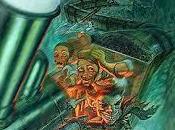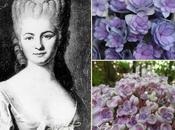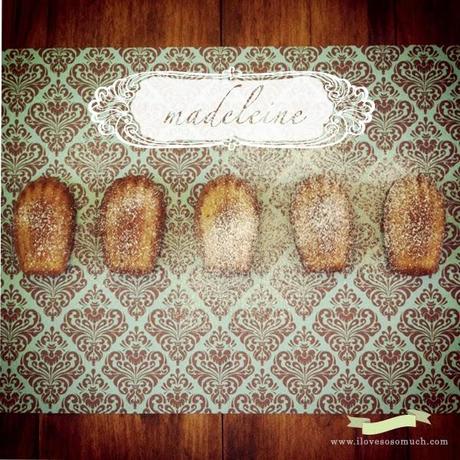
Quando nel 1913 Marcel Proust cominciò con lo scrivere il primo romanzo che costituirà il ciclo intero della 'Recherche', Du côté de chez Swann - La strada di Swann in molti scrittori del continente era avvertito forte il bisogno di dare con la parole espressione scritta al valore evocativo di una sensazione collegata al senso non solamente della vista quanto piuttosto a quelli dell'olfatto e del gusto ... stava prendendo forma il concetto di 'flusso di coscienza', quel mare di sensazioni ed emozioni che, evocate, guidano la mano dello scrittore e che tanta parte avrà più tardi negli scritti di Virginia Woolf che con la sua Mrs Dalloway, le cui giornate sono vissute innanzitutto con il pensiero, inteso come ricordo e riflessione, ne porterà appieno il compimento.
Erano quelli gli anni che preparavano il retroterra del movimento psicoanalitico e molto spesso anche la cultura non solo non rimane insensibile, ma è collegata a movimenti scientifici come se il momento storico fosse uno per ogni forma del pensare.
In questo suo primo romanzo il tema evocativo riveste un ruolo di esclusiva centralità: il protagonista, che coincide col narratore e che non a caso si chiama Marcel, per tramite di una narrazione che procede in modo molto lento e cadenzato, come se della coscienza seguisse anche i tempi, evoca la propria infanzia ed i ricordi ad essa legati avvolti dall'atmosfera della cittadina di provincia di Combray in cui trascorse la maggior parte delle proprie estati dal 1883 al 1892
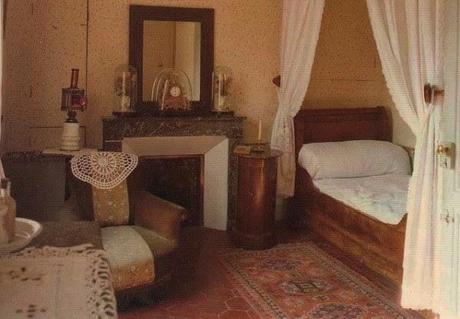
Stanza dell'autore a Combray
insieme con le persone che ne furono gli interpreti principali, dalla gente del villaggio alla madre, alla nonna, alla zia Léonie
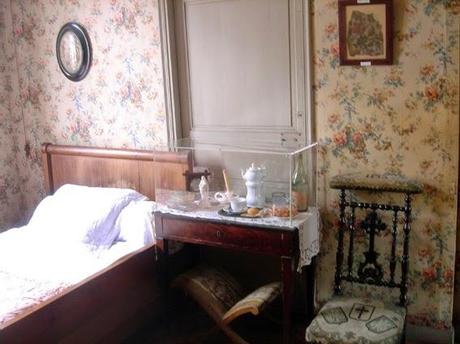
Stanza della zia Léonie
( ed alla sua domestica che preparava le famose Madeleines ) con le quali spesso compiva quotidianamente lunghe passeggiate in luoghi quasi fiabeschi per passare dal parco degli Swann a quello dei duchi di Guermantes,
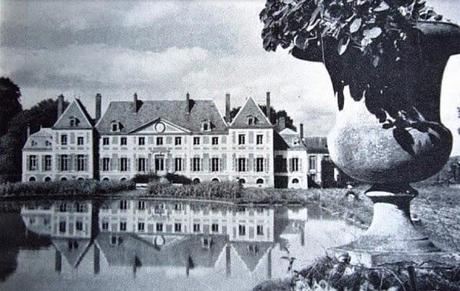
Chateux de Guermantes
ricordando anche la vecchia casa grigia sulla strada, il giardino, le vie, l'amore di Charles Swann per la giovane Odette ed infine quello, per la prima volta vero e sconvolgente, per Gilberte.
E' nella prima parte di questo primo romanzo che compare la narrazione del celeberrimo episodio delle madeleines, quello in cui il protagonista, dopo aver imbevuto nel tè una madeleine, ricorda come era solito mangiarne da piccolo la domenica mattina prima di recarsi alla Funzione, in uno dei passi più affascinanti di tutta la letteratura decadente ...
Una sera d’inverno, appena rincasato, mia madre accorgendosi che avevo freddo, mi propose di prendere, contro la mia abitudine, un po’ di tè. Dapprima rifiutai, poi, non so perché, mutai parere. Mandò a prendere uno di quei dolci corti e paffuti, chiamati 'madeleines', che sembrano lo stampo della valva scanalata di una conchiglia di San Giacomo. E poco dopo, sentendomi triste per la giornata cupa e la prospettiva di un domani doloroso, portai macchinalmente alle labbra un cucchiaino del tè nel quale avevo lasciato inzuppare un pezzetto della 'madeleine'.
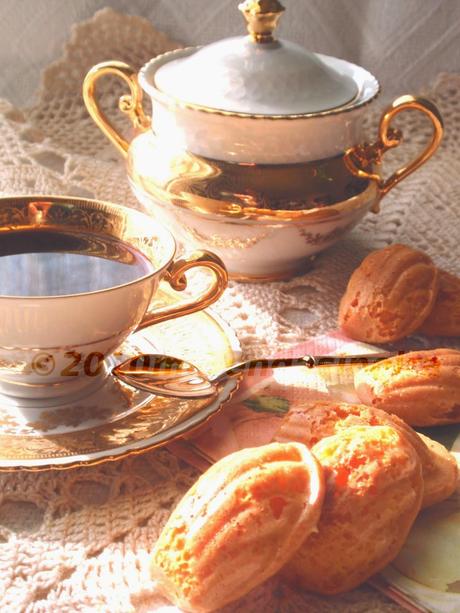
Ma appena la sorsata mescolata alle briciole del pasticcino toccò il mio palato, trasalii, attento al fenomeno straordinario che si svolgeva in me. Un delizioso piacere m’aveva invaso, isolato, senza nozione di causa. E subito, m’aveva reso indifferenti le vicessitudini, inoffensivi i rovesci, illusoria la brevità della vita...non mi sentivo più mediocre, contingente, mortale. Da dove m’era potuta venire quella gioia violenta ? Sentivo che era connessa col gusto del tè e della 'madeleine'. Ma lo superava infinitamente, non doveva essere della stessa natura.
Da dove veniva ? Che senso aveva ? Dove fermarla ? Bevo una seconda sorsata, non ci trovo più nulla della prima, una terza che mi porta ancor meno della seconda. E tempo di smettere, la virtù della bevanda sembra diminuire. E’ chiaro che la verità che cerco non è in essa, ma in me. E’ stata lei a risvegliarla, ma non la conosce, e non può far altro che ripetere indefinitivamente, con la forza sempre crescente, quella medesima testimonianza che non so interpretare e che vorrei almeno essere in grado di richiederle e ritrovare intatta, a mia disposizione ( e proprio ora ), per uno schiarimento decisivo.
Depongo la tazza e mi volgo al mio spirito. Tocca a lui trovare la verità...retrocedo mentalmente all’istante in cui ho preso la prima cucchiaiata di tè. Ritrovo il medesimo stato, senza alcuna nuova chiarezza. Chiedo al mio spirito uno sforzo di più ... ma mi accorgo della fatica del mio spirito che non riesce; allora lo obbligo a prendersi quella distrazione che gli rifiutavo, a pensare ad altro, a rimettersi in forze prima di un supremo tentativo. Poi, per la seconda volta, fatto il vuoto davanti a lui, gli rimetto innanzi il sapore ancora recente di quella prima sorsata e sento in me il trasalimento di qualcosa che si sposta, che vorrebbe salire, che si è disormeggiato da una grande profondità; non so cosa sia, ma sale, lentamente; avverto la resistenza e odo il rumore degli spazi percorsi ...
All’improvviso il ricordo è davanti a me. Il gusto era quello del pezzetto di 'madleine' che a Combray, la domenica mattina, quando andavo a darle il buongiorno in camera sua, zia Leonia mi offriva dopo averlo inzuppato nel suo infuso di tè o di tiglio. La vista della piccola 'madeleine' non aveva riportato nulla alla mia mente prima che la assaggiassi; forse perchè così spesso nel frattempo ne avevo viste molte sui vassoi nelle vetrine delle pasticcerie senza assaggiarle che la loro immagine si era dissociata da quei giorni di Combray per prendere posto insieme ad altre più recenti; forse perchè di quei ricordi, così a lungo abbandonati e messi fuori dalla mia mente, nulla ora è sopravvissuto, tutto era sparso; le forme delle cose, inclusa quella della piccola conchiglia di pasta dolce, così riccamente sensuale sotto le sue pieghe severe e religiose, erano o cancellate o erano rimaste così lungamente sospese da aver perso il loro potere di espansione che avrebbe loro consentito di recuperare il loro posto nella mia coscienza.
Ma quando, da un lontano passato nulla sopravvive, dopo che le persone sono morte e le cose sono rotte e sparpagliate, il gusto e l'odorato da soli, più fragili, ma più durevoli, più inconsistenti, ma più persistenti, più fedeli, rimangono, in bilico, a lungo, come anime, ricordando, aspettando, sperando tra le rovine di tutto il resto; e sopportano senza batter ciglio, nell'esile e quasi impalpabile goccia della loro essenza, la vasta struttura della reminescenza." 1
Straordinaria la facoltà che Proust aveva nel fare sentire, a noi che leggiamo, le sue medesime sensazioni, mediate dai temi del tempo e della memoria ... nel suo rivelare a chiunque lo legga il possedere un meraviglioso mondo interiore in grado di comprendere l'intero universo attraverso la magia della parola e la meraviglia misteriosa dei processi mentali, la finezza del procedimento dello scrivere proustiano offre a chiunque vi si avvicini uno spaccato di incantevole pregio che dona serenità e ristoro allo spirito ... leggerei questo passo all'infinito ed in realtà non vi so dire con esattezza quante volte da che lo conosco lo abbia già letto !
Concludo con un'ultima citazione sempre dal medesimo romanzo che mi sembra, non meno compiutamente, sia manifestazione palese del virtuosismo espressivo di Proust:
Nell'ora in cui scendevo a informarmi del menu, i preparativi per il pranzo erano già cominciati, e Francoise, al comando delle forze della natura venute a darle man forte, come in quelle fiabe dove i giganti si fanno assumere per cuochi, scoteva il carbone, dava al vapore le patate da cuocere in stufato e faceva terminare a punto dal fuoco i capolavori culinari apprestati prima in recipienti di ceramica, che andavano dai caldaioni, dalle marmitte, paioli, pesciaiole, alle terrine per la selvaggina, gli stampi per i dolci, i vasetti da crema, passando attraverso una collezione completa di casseruole di ogni dimensione. M'indugiavo a guardare, sulla tavola, dove la sguattera aveva appena sgusciato dei piselli allineati e numerati come biglie verdi in un gioco; ma sostavo rapito dinanzi agli asparagi, aspersi d'oltremare e di rosa,
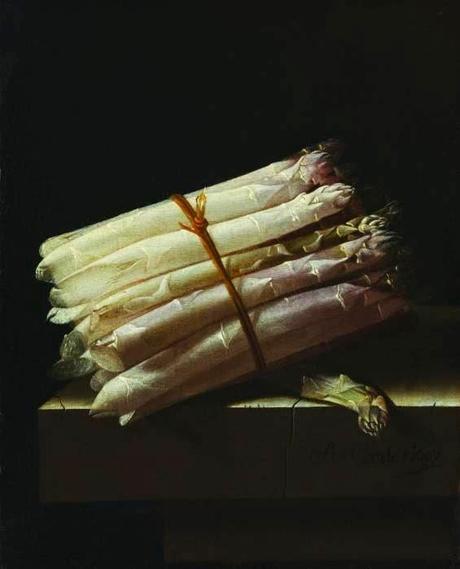
Adriaen Coorte, Naura morta con asparagi, 1697e il cui gambo, delicatamente spruzzato di viola e d'azzurro, declina insensibilmente fino al piede - che pure è sudicio ancora del terreno del campo - in iridescenze che non sono terrene. Mi sembrava che quelle sfumature celesti tradissero le deliziose creature che s'erano divertite a prender forma di ortaggi e che attraverso la veste delle loro carni commestibili e ferme, lasciassero vedere in quei colori nascenti d'aurora, l'essenza preziosa che riconoscevo ancora quando, l'intera notte che seguiva ad un pranzo in cui ne avevo mangiati, si divertivano, nelle loro burle poetiche e volgari come una favola shakespeariana, di mutare il mio vaso da notte in un'anfora di profumo. 2
Mi avvicinai a queste splendide opere letterarie nell'adolescenza, ma ammetto di non essere allora stata in grado di coglierne appieno il valore di conseguenza alla carenza di profondità di cui la giovane età è naturalmente connotata; ne rimasi comunque affascinata e consapevole di avere letto pagine dal valore letterario senza tempo, ma una lettura da adulta mi ha rivelato sfaccettature ed ambiti espressivi prima sconosciuti ... se amate questo autore vi consiglio di riprendere i suoi scritti in mano e di sfogliarli alla luce del sentire adulto ... sono certa che anche voi scoprirete abissi insperati.
Con rinnovata gratitudine ed affetto vi saluto caramente.
A presto ♥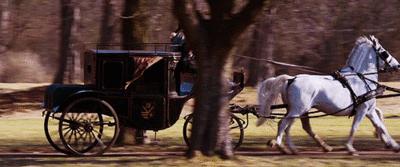

Bibliografia:
Citazioni:
1 - Marcel Proust, La Strada di Swann, op. cit., Parte prima - Combray, pag. 49
2 - Ibidem, pag. 139

- picture 1
When in 1913 Marcel Proust began with writing the first novel that will compose the whole cycle of the ' Recherche ' , Du côté de chez Swann - Swann's Way, in many writers of the continent was felt a strong need to give, with words, written expression to the evocative value of a feeling connected to the sense not only of sight but rather to those of smell and taste ... it was taking shape the concept of ' stream of consciousness ', that sea of feelings and emotions that, evoked, drive the writer's hand and that such an important role will later have in the writings of Virginia Woolf who with her Mrs. Dalloway, whose days are lived first of all with the thought, meant as a remembrance and a reflection, will take it to full completion.
Those were the years that prepared the background of the psychoanalytic movement, and very often the culture is not only insensitive, but indeed connected to the scientific movements as if it were an historical moment for all forms of thinking.
In this first novel of his, the evocative theme plays a role of exclusive centrality : the protagonist, whose name, not as a coincidence is Marcel, by means of a narrative that proceeds in a very slow and rhythmic way, as if of the consciousness were to follow also the times, evokes his childhood and the memories associated with it surrounded by the atmosphere of the small town of Combray, where he spent most of his summers from 1883 to 1892
- picture 2 - The author's bedroom at Combray
together with the people who, of it, were the main performers, the people of the village, his mother, his grandmother, his aunt Léonie
- picture 3 - Aunt Léonie's bedroom
(and her maid who prepared the famous Madeleine) with which he often did almost daily long walks in fairytale places, to pass from the Swanns' park to that of the dukes of Guermantes
- picture 4 - Chateaux de Guermantes
remembering the old gray house upon the street too, the garden, the streets, Charles Swann 's love for the young Odette , and finally that, for the first time truly shocking , for Gilberte .
And it is in the first part of this first novel that appears the narration of the famous episode of madeleines , the one in which the protagonist , after having soaked a madeleine in tea , recalls how he used to eat it as a child every Sunday morning before going to the Function in one of the most fascinating steps of all the decadent literature ...
One day in winter, on my return home, my mother, seeing that I was cold, offered me some tea, a thing I did not ordinarily take. I declined at first, and then, for no particular reason, changed my mind. She sent for one of those squat, plump little cakes called "petites madeleines," which look as though they had been moulded in the fluted valve of a scallop shell. And soon, mechanically, dispirited after a dreary day with the prospect of a depressing morrow, I raised to my lips a spoonful of the tea in which I had soaked a morsel of the cake.
- picture 5
No sooner had the warm liquid mixed with the crumbs touched my palate than a shudder ran through me and I stopped, intent upon the extraordinary thing that was happening to me. An exquisite pleasure had invaded my senses, something isolated, detached, with no suggestion of its origin. And at once the vicissitudes of life had become indifferent to me, its disasters innocuous, its brevity illusory - this new sensation having had on me the effect which love has of filling me with a precious essence; or rather this essence was not in me it was me. I had ceased now to feel mediocre, contingent, mortal. Whence could it have come to me, this all-powerful joy? I sensed that it was connected with the taste of the tea and the cake, but that it infinitely transcended those savours, could, no, indeed, be of the same nature. Whence did it come? What did it mean? How could I seize and apprehend it?
I drink a second mouthful, in which I find nothing more than in the first, then a third, which gives me rather less than the second. It is time to stop; the potion is losing it magic. It is plain that the truth I am seeking lies not in the cup but in myself. The drink has called it into being, but does not know it, and can only repeat indefinitely, with a progressive diminution of strength, the same message which I cannot interpret, though I hope at least to be able to call it forth again and to find it there presently, intact and at my disposal, for my final enlightenment. I put down the cup and examine my own mind. It alone can discover the truth. But how: What an abyss of uncertainty, whenever the mind feels overtaken by itself; when it, the seeker, is at the same time the dark region through which it must go seeking and where all its equipment will avail it nothing. Seek? More than that: create. It is face to face with something which does not yet exist, to which it alone can give reality and substance, which it alone can bring into the light of day.
And I begin to ask myself what it could have been, this unremembered state which brought with it no logical proof, but the indisputable evidence, of its felicity, its reality, and in whose presence other states of consciousness melted and vanished. I decide to attempt to make it reappear. I retrace my thoughts to the moment at which I drank the first spoonful of tea. I rediscover the same state, illuminated by no fresh light. I ask my mind to make one further effort, to bring back once more the fleeting sensation. And so that nothing may interrupt it in its course I shut out every obstacle, every extraneous idea, I stop my ears and inhibit all attention against the sound from the next room. And then, feeling that my mind is tiring itself without having any success to report, I compel it for a change to enjoy the distraction which I have just denied it, to think of other things, to rest refresh itself before making a final effort. And then for the second time I clear an empty space in front of it; I place in position before my mind's eye the still recent taste of that first mouthful, and I feel something start within me, something that leaves its resting-place and attempts to rise, something that has been embedded like an anchor at a great depth; I do not know yet what it is, but I can feel it mounting slowly; I can measure the resistance, I can hear the echo of great spaces traversed.
Undoubtedly what is thus palpitating in the depths of my being must be the image, the visual memory which, being linked to that taste, is trying to follow it into my conscious mind. But its struggles are too far off, too confused and chaotic; scarcely can I perceive the neutral glow into which the elusive whirling medley of stirred-up colours is fused, and I cannot distinguish its form, cannot invite it, as the one possible interpreter, to translate for me the evidence of its contemporary, its inseparable paramour, the taste, cannot ask it to inform me what special circumstance is in question, from what period in my past life.
Will it ultimately reach the clear surface of my consciousness, this memory, this old, dead moment which the magnetism of an identical moment has traveled so far to importune, to disturb, to raise up out of the very depths of my being? I cannot tell. Now I feel nothing; it has stopped, has perhaps sunk back into its darkness, from which who can say whether it will ever rise again? Ten times over I must essay the task, must lean down over the abyss. And each time the cowardice that deters us from every difficult task, every important enterprise, has urged me to leave the thing alone, to drink my tea and to think merely of the worries of to-day and my hopes for to-morrow, which can be brooded over painlessly.
And suddenly the memory revealed itself. The taste was that of the little piece of madeleine which on Sunday mornings at Combray (because on those mornings I did not go out before mass), when I went to say good morning to her in her bedroom , my aunt Léonie used to give me, dipping it first in her own cup of tea or tisane. The sight of the little madeleine had recalled nothing to my mind before I tasted it; perhaps because I had so often seen such things in the meantime, without tasting them, on the trays in pastry-cooks' windows, that their image had dissociated itself from those Combray days to take its place among others more recent; perhaps because of those memories, so long abandoned and put out of mind, nothing now survived, everything was scattered; the shapes of things, including that of the little scallop-shell of pastry, so richly sensual under its severe, religious folds, were either obliterated or had been so long dormant as to have lost the power of expansion which would have allowed them to resume their place in my consciousness.
But when from a long-distant past nothing subsists, after the people are dead, after the things are broken and scattered, taste and smell alone, more fragile but more enduring, more unsubstantial, more persistent, more faithful, remain poised a long time, like souls, remembering, waiting, hoping, amid the ruins of all the rest; and bear unflinchingly, in the tiny and almost impalpable drop of their essence, the vast structure of recollection. 1
I conclude with one last quote from the same novel that seems to me, no less fully, is overt manifestation of the Proust's expressive virtuosity:
At the time I went down to get news about the menu, the preparations for lunch were already started, and Francoise, under the command of the forces of nature come to give her a hand, like in those fairy tales where the giants are hired as cooks, shook the coal, gave to the steam the potatoes to cook in stew and did end up by the fire her culinary masterpieces prepared before in ceramic vessels, ranging from cauldrons to mufflers, pots, fish kettles, the tureen for the game, the molds for cakes, cream jars , passing through a comprehensive collection of pots of all sizes. I linged on watching on the table, where the scullery maid had just shelled peas aligned and numbered as green marbles in a game; but I paused kidnapped in front of the asparagus, sprinkled with pink and overseas,
- picture 6 - Adriaen Cohort, Still Life with Asparagus, 1697
and the stems of which, gently sprinkled with purple and blue, imperceptibly declines to the foot - which is also still grimy with the terrain of the field - in iridescences that aren't earthly . It seemed to me that those nuances betrayed the heavenly creatures who had fun taking the form of vegetables and that through the dress of their edible and still meat, allowed to see in those colors of the rising of the dawn , the precious essence that I recognized again when, the whole night which followed a luncheon where I had eaten them, they enjoyed themselves in their poetic and vulgar jokes, like a Shakespearean tale, of changing my chamber pot into a jar of perfume. 2
I came to know these wonderful works of literature during my adolescence, but I admit that it's not at that age that we're able to fully appreciate their value because of the lack of depth in which the young age is naturally characterized; I was of course fascinated with them and aware that I've read pages from the timeless literary value, but a reading as an adult revealed me previously unknown facets and fields of expression ... if you like this author I would advise you to resume his writings in hand and browse them at the light of the adult feel ... I am sure that you too will discover unexpected depths.
With renewed gratitude and affection I greet you so much dearly my friends.
See you soon ♥
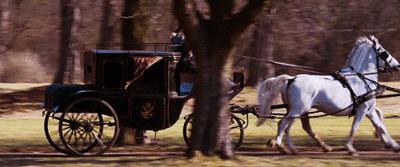

Bibliography:
Marcel Proust, La strada di Swann, Giulio Einaudi editore, Torino, 1998
1 - Marcel Proust, La Strada di Swann, op. cit., Parte prima - Combray, page 49
2 - Ibidem, page 139

